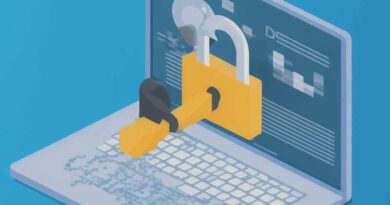Don’t Fall for Phishing Attacks How to Identify and Avoid Them
Cybercrime is a growing threat to individuals, businesses, and government agencies alike. Cybercriminals use various tactics to gain unauthorized access to sensitive information, such as phishing attacks. It’s important to be aware of these threats and take the necessary steps to protect yourself against them. In this article, we will discuss what phishing attacks are, how they work, and how you can prevent them from affecting you or your business.
What Are Phishing Attacks?
Phishing attacks are a common tactic used by cybercriminals to gain access to confidential information or money. They involve sending malicious emails or text messages that appear to come from legitimate sources but contain malware or other malicious code. The attacker may also set up fake websites that mimic legitimate sites to trick unsuspecting users into entering their personal information or downloading malicious software.
How Do Cybercriminals Use Phishing Attacks?
Cybercriminals use phishing attacks for a variety of reasons, including stealing money, gaining access to confidential information such as login credentials or credit card numbers, and spreading malicious software like ransomware. To carry out these attacks, cybercriminals will send out emails that appear legitimate but contain links containing malware or other malicious code that can be used to gain access to a victim’s system once the link is clicked on. Cybercriminals may also set up fake websites that look identical to the real thing to trick unsuspecting users into entering their personal details or downloading malicious software.
Once hackers have gained access to a victim’s system using phishing attacks, they can then use various methods such as keylogging and spyware programs in order to steal passwords and other sensitive data without the user’s knowledge. This stolen data can then be used for financial gain or sold on the dark web to others with nefarious intentions.
How Can You Prevent Phishing Attacks?
Fortunately, there are measures you can take in order to minimize your risk of becoming a victim of phishing attacks and other forms of cybercrime. Here are some tips for staying safe online:
- Be aware of potential threats – it’s important to stay informed about current cyber-security trends so you know what kind of scams might be targeted at you.
- Don’t open suspicious emails – if you receive an email from an unrecognized source asking for personal information such as passwords or bank details then delete it immediately.
- Keep your software updated – ensure all applications on your computer are regularly updated with the latest security patches.
- Use strong passwords – make sure all accounts associated with financial transactions have complex passwords made up of numbers, letters, and symbols.
- Use two-factor authentication – if available on any accounts you hold online then enable two-factor authentication (2FA) which requires an additional code alongside your password when logging in.
- Monitor your accounts regularly – check your bank statements regularly for any unauthorized transactions.
- Utilize anti-virus programs – install anti-virus programs on all devices connected online (including mobile phones) which should detect any potential viruses attempting entry onto your device.
- Be wary of free Wi-Fi networks – do not download files from free Wi-Fi networks as they could potentially contain malware designed specifically for those networks.
- Report suspicious activity if you think someone has tried accessing one of your accounts through a phishing attack then contact law enforcement authorities so they can investigate further.
- Backup important files – backup any essential documents regularly onto an external hard drive/cloud storage platform so that if there is ever an incident involving ransomware where your files become encrypted then you’ll still have access elsewhere.
These are just some basic steps anyone can take in order protect themselves against phishing attacks and other forms of cybercrime. By taking simple precautions like these now it will help ensure whatever personal data you do have stored online is always kept secure.



